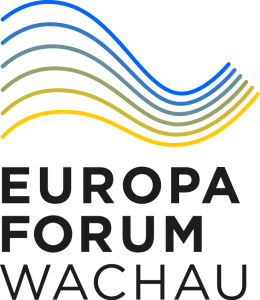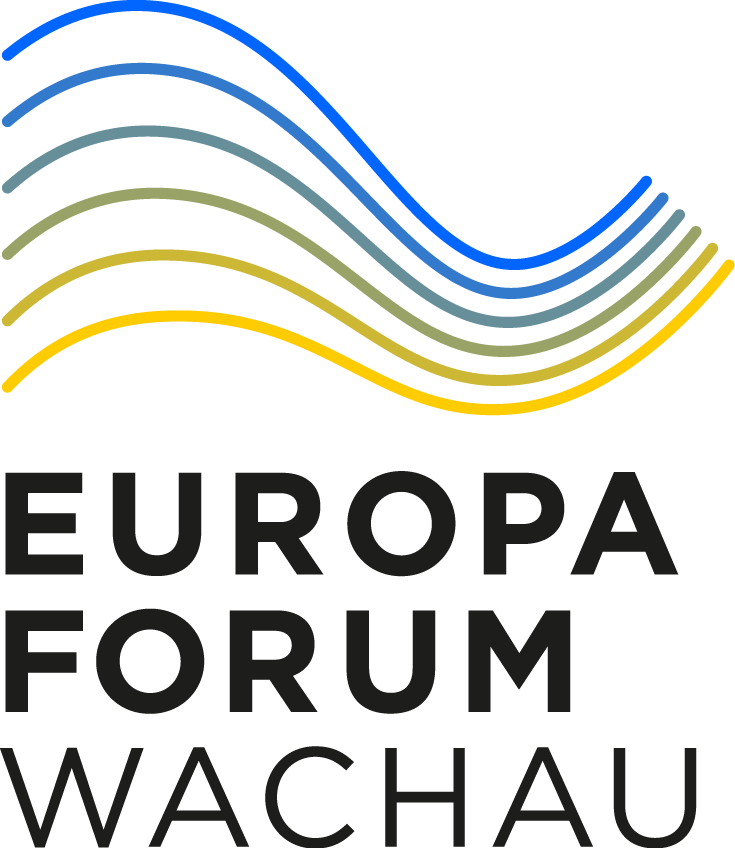Top-class guests in the Wachau from 22 to 24 June
"Building a Resilient, Green and Competitive Europe" - this is the motto of this year's Wachau European Forum, which will take place from 22 to 24 June. Today, Thursday, Governor Johanna Mikl-Leitner, Minister for Europe Karoline Edtstadler and the President of the Europa-Forum Martin Eichtinger gave an outlook on the most important topics, programme items and guests of the Europe-wide and internationally renowned discussion forum.
"Lower Austria is a strong, self-confident and visionary country in Europe. A country where the old Europe used to end has become a place at the heart of Europe," said Governor Mikl-Leitner at the beginning. Lower Austria has benefited greatly since Austria's accession to the European Union, she began: "Every euro we invest in the EU comes back threefold. We have 100 per cent utilisation of the funding pots, the national average is 95 per cent." Flagship projects include the "House of Digitalisation" in Tulln and the "health across" project in Gmünd. Since joining the EU in 1995, a total of 665 million euros in EU regional funding has flowed into Lower Austria, which has resulted in the realisation of over 6,200 projects and a total investment of around four billion euros, creating around 15,000 jobs, according to the Governor.
"Precisely because the EU is so important to us, it is also important to us that the EU develops in the right direction," emphasised Mikl-Leitner with a view to the European Parliament elections, which will take place in around a year's time. In this context, she demanded: "The EU must stop getting bogged down in details, new bans and requirements." For example, there is no need for EU regulations when it comes to protecting forests, restricting cash or protecting wolves: "It is no longer the wolf that is under threat, but people's sense of security." We need "not a European Union of commandments and prohibitions, but a Union of peace, freedom and competitiveness", said the Governor, who formulated four guidelines in this regard. Firstly, it was necessary to "strengthen the competitiveness of the European Union and thus secure our prosperity", for example by making our own economic cycles less dependent on other economic regions. Secondly, she called for "openness to technology to be the top priority in European climate policy" and for industry to be seen "as a partner and not an opponent" in the fight against climate change: "Innovations are not created at desks in Brussels, but in our companies." Thirdly, "the EU's external borders must be better protected", Mikl-Leitner also demanded, and fourthly, we need "an EU that performs more and standardises less". She identified a "tendency towards centralisation" and called for a "return to the principle of subsidiarity", because "strengthening the principle of subsidiarity also strengthens trust in the EU".
Mikl-Leitner emphasised that she wanted to promote these four guidelines at the European Forum and also at European level. The aim is "an alliance of the sensible" and "a Europe that tackles the major challenges with common sense and takes care of the concerns of its citizens", because "it is high time for the EU to change course".
"The Wachau as a region and the Europa-Forum as an institution are once again inviting us to a discussion about Europe in the heart of Europe," said Federal Minister Karoline Edtstadler, looking forward to the upcoming days in the Wachau. She herself will meet her two counterparts Peter Burke from Ireland and Tytti Tuppurainen from Finland in a round table talk on Friday, 23 June, and on Saturday, 24 June, Matthias Kettemann from the University of Innsbruck and Wolfgang Kleinwächter from the University of Aarhus, among others, will discuss the topic of "Internet Security" with her, she said, giving a brief insight into the programme.
"The EU and the world are facing major challenges and upheavals," said the Minister for Europe, referring to the war in Ukraine, rising prices, inflation and a shortage of skilled labour. "Only together" is it possible to preserve peace, freedom and security: "We must defend Europe's values in order to secure Europe's prosperity and utilise change to do so." She was convinced that ecological and digital change was unstoppable and that it was now time to "set the right course". However, this requires above all "discourse, competition between the best ideas", said Edtstadler.
Since it was founded in 1995, 29 prime ministers and 39 foreign and European ministers have been guests at the Europa Forum, said Martin Eichtinger, President of the Europa Forum. Among the highlights of this year's programme, he mentioned a boat trip on the Danube in conjunction with round table talks by high-profile guests, as well as the participation of 80 young people from nine European Union countries: "They will be able to present their ideas for the future of Europe at the Forum." Foreign Minister Alexander Schallenberg will meet with his counterparts from the Czech Republic (Jan Lipavsky), Slovakia (Miroslav Wlachovsky) and Croatia (Gordan Grlic Radman) on Friday morning, while Education Minister Martin Polaschek will also hold discussions with the Swiss State Secretary for Education, Martina Hirayama, on the same day, Eichtinger previewed. On Saturday, 24 June, Federal Chancellor Karl Nehammer will give a speech, as will the President of the Republic of Bulgaria, Rumen Radev. Guests on the opening day on Thursday 22 June will include the Serbian Minister of Justice Maja Popovic, the Vice-President of the European Commission Margrethe Vestager, the First Vice-President of the European Parliament Othmar Karas, the President of the Chamber of Commerce Harald Mahrer and the President of "Eurochambres" Vladimir Dlouhy. President Eichtinger concluded: "The Wachau European Forum has become a fixture in the European and international discourse".

